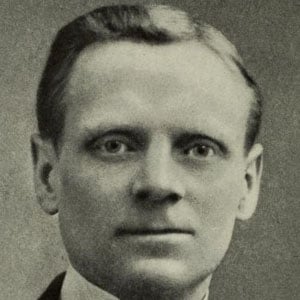Quick Facts

| Full Name | Norman Angell |
| Date Of Birth | Dec 26, 1872(1872-12-26) |
| Age | 154 |
| Date Of Death | 1967-10-07 |
| Birthplace | Holbeach |
| Country | United Kingdom |
| Birth City | England |
| Horoscope | Sagittarius |
Norman Angell Biography
| Birthday | Dec 26 |
| Birth Year | 1872 |
Norman Angell is one of the most popular and richest Children's Author who was born on December 26, 1872 in Holbeach, England, United Kingdom. A prestigious award-winning English journalist He was the writer of numerous important economics-related works such as The Great Illusion (1910) as well as a children’s educational tool known as The Money Game (1928). He was given Nobel Peace Prize in 1933. Nobel Peace Prize in 1933.
When the war began, World War II, he made the move to America in the hope of getting American supporters to At the onset of World War II, he moved to America with the goal of building up American support for Winston Churchill and Great Britain. and Great Britain.
His birthplace was Holbeach, England, and was raised with five siblings. When he was in his late teens, he left on his own across Europe into America. United States.
Norman Angell Net Worth
| Net Worth | $5 Million |
| Source Of Income | Children's Author |
| House | Living in own house. |
Norman Angell is one of the richest Children'S Author from United Kingdom. According to our analysis, Wikipedia, Forbes & Business Insider, Norman Angell 's net worth $5 Million. (Last Update: December 11, 2023)
At the age of 17 at the time, he emigrated into at the West Coast of America and was employed as an agronomist, cowboy and prospector. Later, he accepted a job as a reporter with The San Francisco Chronicle.
In 1931, he was awarded the title of knight in recognition of his service to the international peace.
Height, Weight & Body Measurements
Norman Angell height Not available right now. Norman weight Not Known & body measurements will update soon.
Who is Norman Angell Dating?
According to our records, Norman Angell is possibily single & has not been previously engaged. As of December 1, 2023, Norman Angell’s is not dating anyone.
Relationships Record : We have no records of past relationships for Norman Angell. You may help us to build the dating records for Norman Angell!
Facts & Trivia
Norman Ranked on the list of most popular Children's Author. Also ranked in the elit list of famous people born in United Kingdom. Norman Angell celebrates birthday on December 26 of every year.
Top Facts about Norman Angell
- Norman Angell was a British politician and journalist.
- He won the Nobel Peace Prize in 1933.
- His real name was Ralph Lane, but he changed it to Norman Angell.
- He wrote the book “The Great Illusion” in 1909.
- The book argued that war was economically futile.
- It became an international bestseller and was translated into over 20 languages.
- Angell also served as a Member of Parliament for Bradford North from 1929-1931.
- He was a strong advocate for international cooperation and disarmament.
- Angell died in 1967 at the age of 94.
- His ideas on peace and economics continue to influence political thought today.
Who was Norman Angell?
The British journalist and author Norman Angell is the only person to have been awarded the Peace Prize for publishing a book. In 1910 he wrote The Great Illusion, of which over two million copies were sold and which was translated into 25 languages.
Is Norman Angell a liberal?
Ralph Norman Angell
Nationality| British
Occupation| lecturer, journalist, author, politician
Known for| Nobel Peace Prize (1933)
Who wrote The Great Illusion?
Norman Angell
What is the name of the author who wrote an influential book that
predicted the impossibility of war between the European great powers before World War I?
New 1933 edition
Authors Norman Angell
Original title| Europe’s Optical Illusion
Language| English
Publication date| 1909; 1933
Why did Norman Angell in a famous book written before World War 1 argue
that war is a great illusion?
Why did Norman Angell, in a famous book written before World War I, argue that war is a “great illusion”? The costs of war include cutting off lucrative commercial and financial ties, making the costs of war higher than any benefits that might be gained.